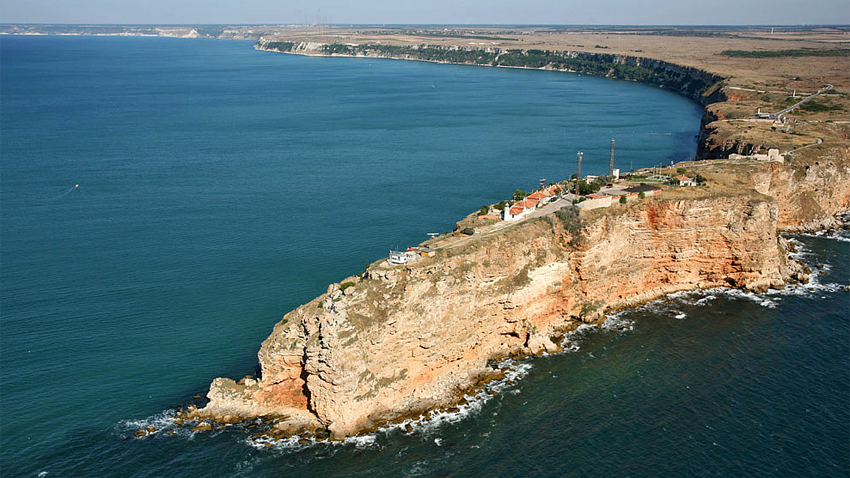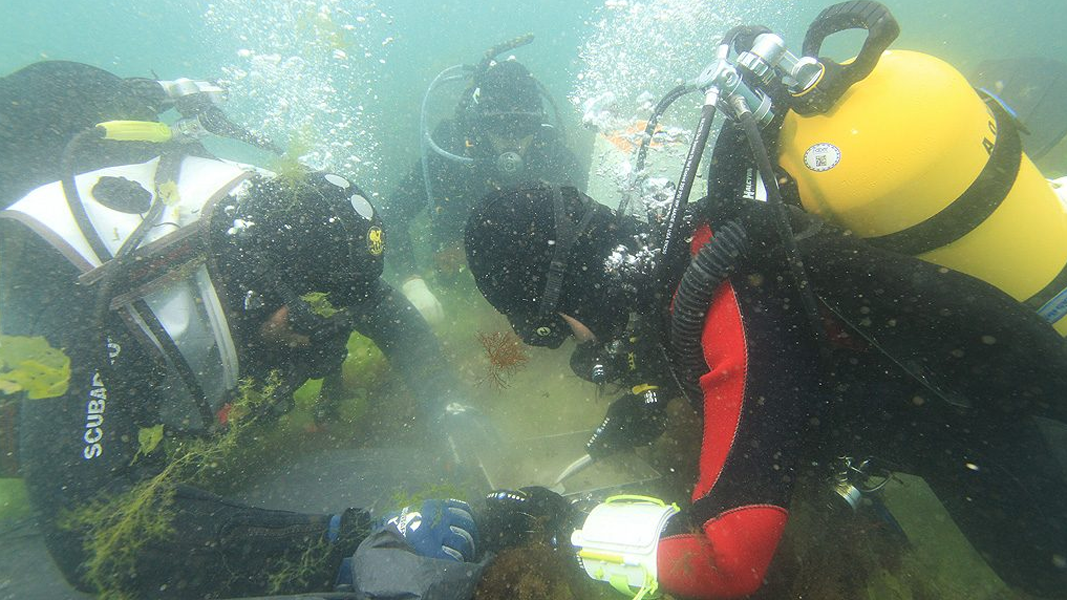An expedition took place in August, 1959, close to Kaliakra Cape in the Black Sea, which is regarded as the start of Bulgarian underwater archaeology.

On the occasion of the 60th anniversary of that event, the Bulgarian news agency, BTA, talked to Preslav Peev, head of the Marine Geology and Archaeology department of the Bulgarian Academy of Sciences’ Institute of Oceanology in Varna.
Preslav Peev says that the expedition in question did not find any signs of the 1791 battle between Russia and the Ottoman Empire, which was the expedition’s purpose. The first successes for Bulgaria’s underwater archaeology came several months later with the discovery of interesting artifacts in the region of Cape Maslen. By the 1960s and 1970s science boomed and exploration spread across the entire Black Sea coastline. As work progressed parts of sunken prehistoric settlements were found, as were residential areas, fortress walls, ships.

No whole sunken vessels have been found in Bulgaria’s aquatoria though different kinds of cargo has been found at a depth of 2 to 30 metres. Still, several well-preserved ancient ships have been discovered. The oldest ship, dated to the second half of the 2nd and the beginning of the 3rd century AD transported processed fish – catfish - most probably caught in one of the big rivers in the northwestern region of the Black Sea. Fish has been known to have been exported from the Black Sea to the Aegean region since the time of Aristotle. But merchant ships also carried grain, wine, leather, metals, olive oil. There is also evidence that caviar was exported from Pomorie to Constantinople though it is not known which of the notables it was intended for.

Navigation in the Black Sea is mostly cabotage or coastal, but the ancients were also apt to take risks and sail across the sea, evidence of which are the shipwrecks found between Turkey and the Crimea, as well as a ship discovered in the region of the Black Sea Cape of Byala whose cargo comes from North Africa.
The sea currents have not changed much since ancient times, but there are considerable changes in the outline of the seashore. The sinking of the settlements close to the coastline was not the result of any disaster or the rise in the level of the Black Sea, it was a gradual process. As a matter of fact, in our day, the level of the sea water rises by 2.8-3 milimetres a year.

Modern technologies have opened up a host of new opportunities in underwater archaeology, commented for BTA, Assoc. Prof. Peev. Objects have been registered at a great depth, including naval vessels made of wood. And though many years have passed, they are very well preserved thanks to the hydrogen sulfide zone of the Black Sea which acts as a natural conservation laboratory, as there are no microorganisms inside it to eat away at organic matter. The Institute of Oceanology of the Bulgarian Academy of Sciences in Varna now has a mini-sub capable of going down to a depth of 170 metres.
As anywhere in the world there are legends of underwater treasure but scientists are sceptical. They are just as sceptical of the tales of pirate treasures. It is true that piracy was not unknown in the Black Sea, pirate attacks have been abundantly described, especially in the 17th century. Yet there is no evidence of major battles with pirates in the Black Sea, and the stories of jolly rogers in its waters are laughable at best, comments Assoc. Prof. Preslav Peev for the BTA. But adds that the Black Sea may well give researchers a surprise one day.
Edited by Stoimen Pavlov
Photos: BTA, archive, EEF/Black Sea Map и io-bas.bg иAs winter numbs the wilderness, the tortoises hibernate in their shelters, protected from the cold and outside threats. But what happens to them during this time? Where do they feel safest and when can we expect them to wake up? In the village of..
On January 25 this year, the Bulgarian National Radio will celebrate its 90th anniversary. The celebration will be accompanied by various initiatives, culminating in the ceremony of presenting the Annual Radio Journalism Awards "Sirak..
Bulgarian gardeners have been bringing the glory of Bulgaria to Croatia for more than a century and a half. They were true "ambassadors" of the humble and hardworking Bulgarian people, Diana Glasnova, author of the book Bulgarian Gardeners in..
On 25 January 1935, Tsar Boris III signed the decree establishing the Bulgarian National Radio. The document, which officially marked the beginning of..
The Federation of European Carnival Cities has declared Pernik a global center of masquerade traditions. 16 years ago, Prenik was named the European..

+359 2 9336 661
